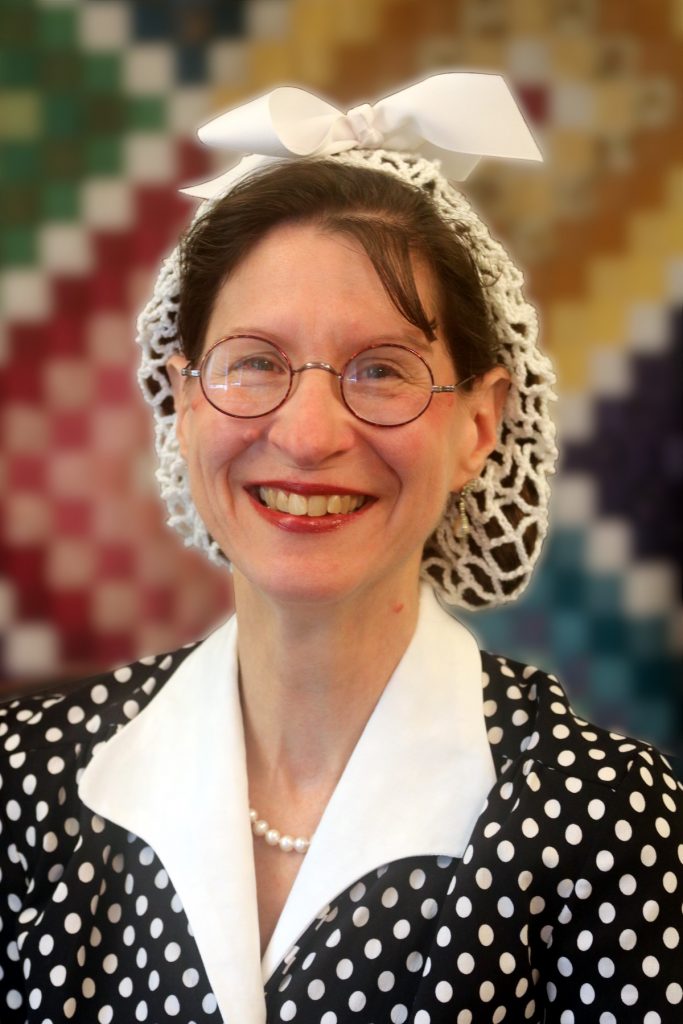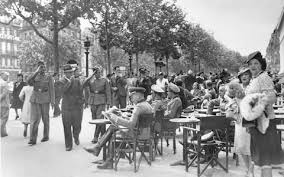I’m thrilled to have fellow historical romance author, Linda Shenton Matchett, on my blog today sharing some of the interesting history she highlights in her latest release, Love’s Rescue.
What would you resort to in order to stay alive? Would you break the law? Go into hiding? Consort with the enemy? During the occupation of France by the Nazis during WWII, French citizens asked themselves these very questions.
The danger of being sent to Germany or German-occupied countries to perform hard labor was high for men, young and old. Other citizens faced arrest and torture, often for little or no reason. Still others were seized and shipped to concentration camps. Until the liberation in 1944, living in France was a difficult and frightening time.
Despite the risk, many women chose to resist the Occupation: some officially by joining La Résistance; others informally by refusing to adhere to the numerous mandates put in place after the Germans arrived.
Teenage girls transported messages in their bicycle handlebars, and mothers hid contraband and supplies under their infants in baby carriages. Jews and other “undesirables” were concealed in wine cellars or smuggled out of the country, while downed pilots and escaped POWs were passed along various routes to freedom.
Then there was the unknown number of women who used sexual relationships with Nazi officers and soldiers to receive special favors, such as food, clothing, petrol, extra ration books, and other hard-to-get items. Reviled, these women were shunned, humiliated, or worse, tried and executed after the war.
In an interesting twist to the treatment of those women, professional prostitution was legal, and in fact, the industry became a booming business during the Occupation. Regulated by the Germans, the brothels did quite well and multiplied exponentially. Reports indicate that the number of prostitutes rose to more than 10,000 in Paris alone. Because prostitution was their vocation, these women did not face charges when the war ended.
Fortunately for the Allies, some prostitutes used their jobs to obtain intelligence about troop numbers, locations, and movements, then sent the information to the military through La Résistance cells, no doubt increasing the ability of the armed forces to succeed. Does their assistance justify their employment?
My recent release, Love’s Rescue, is a modern retelling of the story of Rahab. Set in the final weeks before the liberation of Paris, it tells the story of Rolande Bisset, a professional prostitute who comes to know God and must reconcile her new faith with the need to survive the Occupation
What would you have done?
About the Book
 A prostitute, a spy, and the liberation of Paris.
A prostitute, a spy, and the liberation of Paris.
Sold by her parents to settle a debt, Rolande Bisset is forced into prostitution. Years later, shunned by her family and most of society, it’s the only way she knows how to subsist. When the Germans overrun Paris, she decides she’s had enough of evil men controlling her life and uses her wiles to obtain information for the Allied forces. Branded a collaborator, her life hangs in the balance. Then an American spy stumbles onto her doorstep. Is redemption within her grasp?
Simon Harlow is one of an elite corps of American soldiers. Regularly chosen for dangerous covert missions, he is tasked with infiltrating Paris to ascertain the Axis’s defenses. Nearly caught by German forces moments after arriving, he owes his life to the beautiful prostitute who claims she’s been waiting for the Allies to arrive. Her lifestyle goes against everything he believes in, but will she steal his heart during his quest to liberate her city? Inspired by the biblical story of Rahab, Love’s Rescue is a tale of faith and hope during one of history’s darkest periods.
Purchase Links
Amazon Kobo GooglePlay AppleBooks B&N
About the Author

Linda Shenton Matchett is an author, speaker, and history geek. A native of Baltimore, Maryland, she was born a stone’s throw from Fort McHenry and has lived in historic places all her life. Linda is a member of ACFW, RWA, and Sisters in Crime. She is a volunteer docent and archivist for the Wright Museum of WWII and a trustee for her local public library.
Connect with Linda
Website/Blog Facebook Pinterest Twitter Linked In
Amazon Author Page Goodreads BookBub
Receive a free short story, Love’s Bloom, the prequel to the Wartime Brides series) when you sign up for Linda’s newsletter


Robert Sturm
Though now a faithful Christian, I am entering seminary for my master’s degree in Prescriptive Philosophic theology.
I was raised Jewish and was Bar Mitzvah’d and so were my grown children. My father, at the age of 17 was enterred at Dachau. The gates of the camp were inscribed with, ” Arbeit Macht Frei” or “Work sets you free” outside of Munich in 1937.
I would love to share his and my story with you. I am Also in the process of completing my book which I hope to publish in a next year! I live very close to Purcellville in Reston Virginia. A book about my family was published in Augsburg, Germany, my father’s Hometown, in the past 5 years with an excellent historical account.
Would you be interested in comparing notes? In Christ I Firmly Stand!
romancinghistory
Hi Robert, Thank you for visiting the blog today. I have personally visited Dachau and remember the inscription on the gates you are referencing. Although I personally write about 19th century America, I am fascinated by all aspects of history and would enjoy learning more about you and your family’s story and also connecting with another Christian writer. If you’d still like to meet up, please use the contact form on my website and we can arrange a time to do so. Blessings!
Kathy Bailey
What fun to see my friend on my OTHER friend’s blog. Six degrees of separation, or maybe four? Two?
Linda, I am looking forward to reading this one. The story of the French Resistance is yet another layer of heroism coming out of The Greatest Generation, which was not only our people who went over to fight, but the residents of Europe who defied the Nazis at sometimes the greatest cost. Their stories, real and fictional, need to be told. Linda, we still need to have that cup of coffee in Concord…
romancinghistory
So true, Kathy. The story of the French Resistance is one of bravery and courage in the face of unfathomable evil. Thanks for visiting today!
Linda Shenton Matchett
Thanks for hosting me, Kelly!
romancinghistory
You’re so very welcome, Linda! I really enjoyed learning about how messages were smuggled in occupied France.